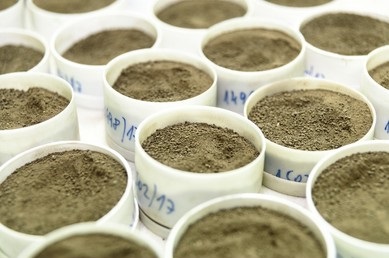Soil is an important component of the environment and often interacts with the atmosphere, water, organisms, and other environmental elements as external conditions. Soil can grow plants, provide food for humans and other animals, and is the carrier of all above-ground objects (including buildings), which directly affects the quality of agricultural food and the safety of the human living environment.

Once metals enter the soil, it is difficult to decompose in the process of biological material cycle and energy exchange, and even more difficult to migrate out of the soil, which will not only affect the ecological structure and functional stability of the soil but also adversely affect the growth of plants and even cause harm to human health through the food chain.
From its initial application in geoscientific research, ICP-MS (inductively coupled plasma mass spectrometry) has been rapidly applied to environmental, metallurgical, petroleum, biological, medical, semiconductor, and nuclear materials fields. Lifeasible uses ICP-MS to rapidly detect multiple elements in small amounts of soil samples, with the advantages of low detection limits, low interference, wide linear range, high sensitivity, simultaneous determination of dozens of elements, and both isotope ratio and isotope dilution analysis.
Lifeasible has established an analytical platform for the detection of total soil metals based on the ICP-MS method, and we can accurately and efficiently complete the determination and analysis of 21 metal elements in samples, including Ag, As (human carcinogens and neurotoxicants), Ba, Be (it can cause plant poisoning if it exceeds 0.5 mg/L in the soil solution), Bi, Cd, Cr (carcinogenic), Co (can kill crops when levels in the soil are too high), Cu, Li, Mn, Mo, Ni (carcinogenic), Sb, Sr, Pb, Th (radioactive metal element), Tl (potent nerve agent), U, V, and Zn.
Rapid soil digestion using nitric acid, hydrochloric acid and hydrofluoric acid heated on a graphite digester is a complete digestion method for silica-containing substrates, developed from the traditional wet digestion method.
Therefore, Lifeasible also uses the rapid digestion method to determine the total amount of heavy metals in soil samples. It has the advantages of simple steps, short time, low reagent usage, and effective avoidance of vessel staining. This method is not only suitable for ICP⁃MS, but also ICP⁃OES (inductively coupled plasma optical emission spectroscopy).
Lifeasible provides technical services for the detection and analysis of total metals in soil samples with the advantages of a fast, accurate, and wide range of detection. We can use a variety of methods to detect the content of more than 20 major metals in soil samples, etc., and provide our clients with detailed analysis reports of the test results. If you are interested, please contact our staff for an accurate quote.